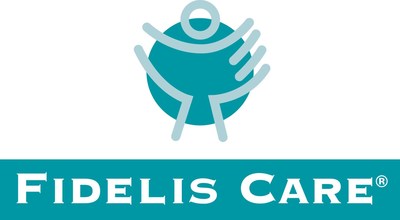Do you feel a bit lost when people refer to certain environmental sustainability topics and aren’t sure where to start when it comes to learning more? Sustainability 101 is a blog series that you can turn to for information about different environmental terms that may come up at work, during discussions with friends, and even at your annual holiday gathering.
Chances are when someone flips on a light switch or turns on a computer, they don’t think about what is generating that electricity.
The demand for energy is increasing across a range of industries and sectors, driven by technologies like artificial intelligence (AI), and electric vehicles (EVs) and the digitization of emerging and developing economies. According to a new report from the International Energy Agency (IEA), global electricity consumption is forecast to expand at around 4% annually through 2027. That’s the equivalent of adding an amount greater than Japan’s annual electricity consumption every year between now and 2027.
How is the world going to meet this demand for electricity? More energy-efficient technology, grid digitization, and clean energy are things that can help. Clean energy in particular can play an important role in creating a more secure, reliable, replenishable, and durable energy system that lowers costs and reduces environmental impacts. According to the IEA’s Renewables 2024 report, “…renewables will account for almost half of global electricity generation by 2030.”
What is clean energy
Clean energy is any power source that releases little to no direct greenhouse gas (GHG) emissions into the atmosphere. As a pollution-free energy alternative available in virtually every part of the world, it boosts and diversifies the global energy supply and can often be more cost-effective.
Solar and wind power often come to mind when you think about clean energy sources, but they also include ocean, geothermal, nuclear, and hydropower.
enewable energy is a subset of clean energy. However, not all clean energy is renewable. Take nuclear power, for example: It’s considered clean energy because the power released from splitting atoms doesn’t release GHGs but is not renewable since the uranium resources necessary are limited.
Benefits of clean renewable energy
For Cisco, clean renewable energy has shown numerous benefits such as:
- Can be competitively priced in some markets and over time can save money.
- Can be less vulnerable to market fluctuations and supply chain disruptions, depending on the market.
- Helps companies meet GHG emissions reduction goals, which are frequently aligned with those of their value chain partners and customer base and essential when customers require businesses to reduce or eliminate operational GHGs as a part of doing business.
For communities located nearby, a new clean energy plant can:
- Boost local energy production and availability at competitive rates.
- Spur local economic growth with power plant employment and infrastructure development; 42% of all energy jobs are now in the clean energy sector.
- Emit fewer air pollutants.
What is Cisco doing?
For Cisco, using clean renewable energy for our operations makes good business sense. In addition to cost savings, increased energy access, and playing a role in our goal to reach net zero GHG emissions across our value chain by 2040, it also strengthens our reputation as a leader in sustainability.
Cisco began its clean energy journey in 2007 with 11% of its electricity generated by clean energy sources. Today, 96% of our global electricity use comes from renewable sources, and we strive to support further adoption of clean energy. Areas where we focus include:
- Developing technology for energy grid efficiency and resilience that delivers power more securely. The ever-increasing adoption of decentralized clean energy sources can strain power grids. Tailored to utilities and smart grids, Cisco solutions can help keep digital infrastructure secure, up-to-date, and optimized.
- Engaging in long-term, local clean energy contracts to power our facilities. Whenever possible, Cisco looks at ways to generate our own onsite electricity. However, when that isn’t practical or cost-effective, we enter power purchase agreements (PPAs) with clean energy developers building new projects, as we did for our first wind energy project in the same market as our Richardson and Allen, Texas campuses. Fisher County, Texas residents also benefited, gaining an electric power plant and jobs from the developer and operator. More recently we signed PPAs with X-ELIO and Southern Power.
In India, Cisco’s Bangalore campus, which includes offices, a research lab, and a large data center, recently entered a 15-year, fixed-price agreement with a clean energy plant 164 miles away. At any given time, the Cisco complex runs on anywhere from 98 to 100% clean power.
- Investing in clean energy innovations. The Cisco Foundation and Cisco Investments, the company’s venture arm, provides funding to nonprofits and start-ups advancing clean energy solutions.
Some organizations they have invested in include:
SHYFT Power. In Africa roughly 600 million people still lack electricity, mostly in sub-Saharan countries. SHYFT power has introduced a technology platform encouraging clean energy adoption in Nigeria.
CorPower Ocean, a Swedish company developing viable ways to harness ocean waves as a continuous, renewable energy resource.
Evolving towards a more energy secure and sustainable world
Clean energy adoption provides opportunities to increase energy security while helping to reduce costs, create jobs, and stimulate economic growth. Through our efforts to procure clean energy for Cisco, we have seen the benefits to our business, to our customers, and to the planet.
Read more about Cisco’s clean energy journey, as well as how other companies can start or advance their own in the new Cisco Clean Energy Playbook.
—–
Evan Brown is based out of Cisco’s Research Triangle Park campus in North Carolina. Vijay Ettiyagounder is based out of Bangalore, India, Cisco’s largest campus outside of the United States.




